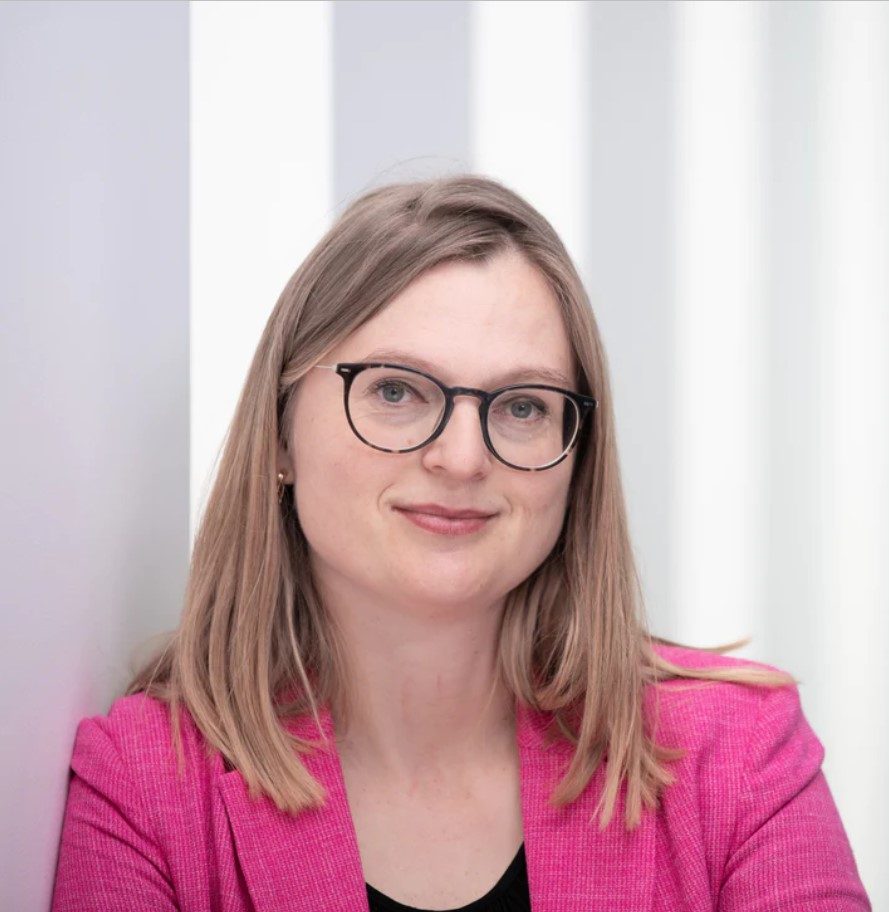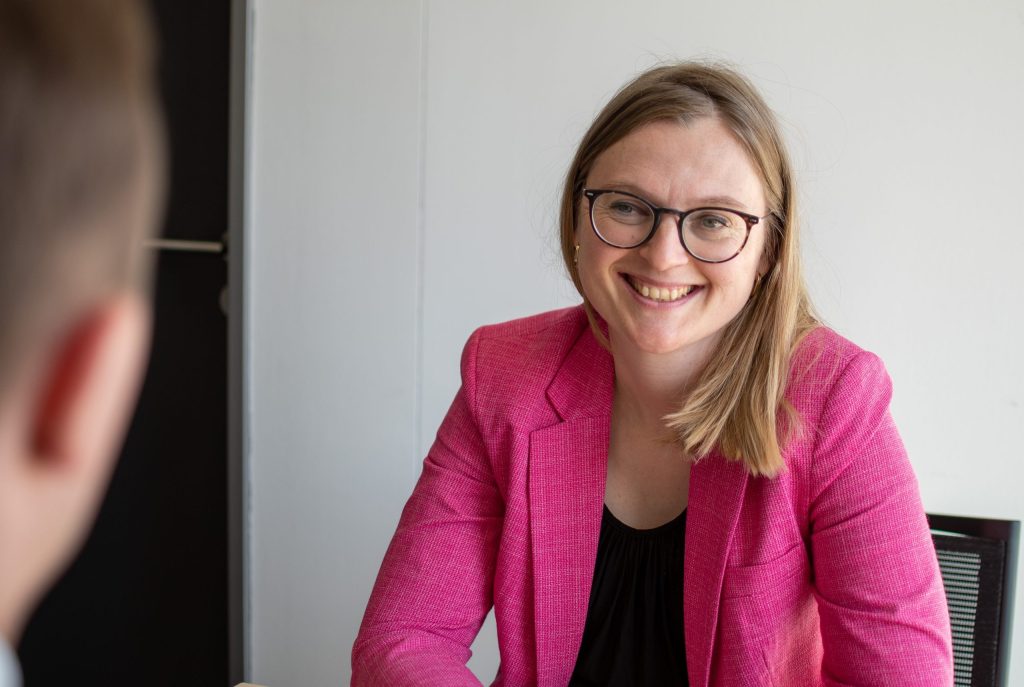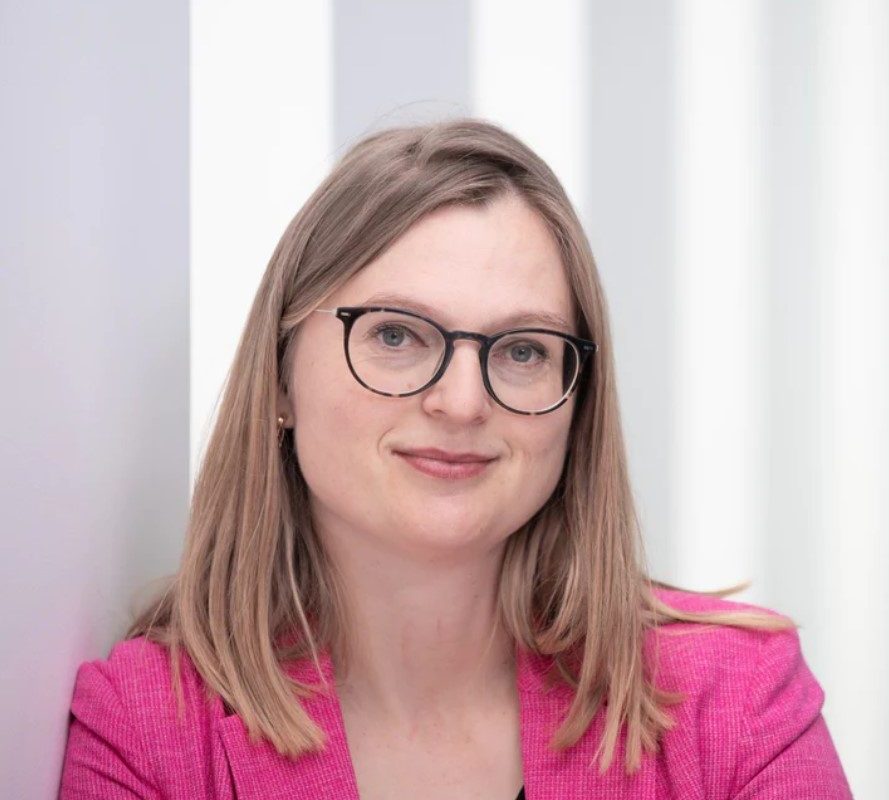
portrait
For some people, as Tom Cochrane will attest, “life is a highway”. You start at the beginning, end at the end, and every stop along the way is perfectly planned and never deviates. For others, like Laura Gertenbach, it’s more like a winding path through the unknown. From hospitality to cold chain logistics, from leather bags to the medical field, Laura has had a wide variety of experiences that led her to founding and running Innocent Meat today.
Limitless Horizons
In 2006, Laura obtained a BA in Tourism and Leisure Management from the EU Business School. “I wanted to travel, and I wanted a job that enables travelling,” she confided.
At the same time, she was working hospitality at a hotel in Barcelona, and it was here that this dream got a bit of a reality check. Although she enjoyed providing guests with tips for the best restaurants and activities the city had to offer, off the beaten tourist track, and their genuine appreciation, she grew tired of constantly parroting the same routine customer service mantra.
After a bit of a career change and three years in Barcelona, she decided it was time to go back home to Rostock, where she would again discover that even at home, your horizons are only limited by the goals you set yourself. She began working towards a degree in Information Technology with a focus on Machine Learning.
Her teachers may not have believed in her at first, but Laura saw the value in learning IT techniques for her own career, and she wasn’t going to let anything hold her back. “I’ve always been bad at maths,” she admitted. “You have to be very disciplined at it, but it wasn’t that hard. I figured out, I really can think logically, and everybody can do it. You just have to get behind the magic of Maths”.
Starting From Zero
“Wherever I tried to be employed, I got fired,” Laura reflected with a smile. “I guess it’s because I really wanted to have my own company.” In October, 2013 she sat down with her father to try to figure out what to do next.
Rostock is in eastern Germany, in what was one the German Democratic Republic. As such, Laura’s father wasn’t given much of a choice when it came to his career as a farmer, but he had an enterprising spirit, which led him to developing real estate companies later in life, and he passed that spirit on to his daughter.
While flipping through a magazine, she stumbled on a page displaying Christmas trees. “I said, Hey, you know what? I could do that.“she explained. But her idea didn’t stop at simply selling the Christmas tree. Having already gained experience in logistics, she decided to marry the concepts and created her first company, Gustaafs. Clients can come choose their trees or order them online, and they handle all the transport and logistics of getting it to your door.
Expanding the Business
After opening Gustaafs, her clients began to express their desire for a wider-ranging service. What’s Christmas without a Christmas dinner, after all? Since her family ran a farm, it seemed like a logical next step.
“In Germany, duck is very traditional for Christmas. So, I found a farmer who was close by and then I started offering poultry and duck“she recalled. “And that’s how my second business was born“. Oberlecker translating roughly to ‘Mega Yummy’ in her words, was a new challenge built on the same foundation of strong logistics fundamentals.
Laura wasn’t a trained butcher and found herself learning on the fly how to manage the animals from the farm to the end customer. I always test first, then I can go forward and bootstrap “. It was up to her to manage getting the animals to the slaughterhouse and managing which cuts of meat she would provide for her discerning clientele.
“I wanted to address premium clients. And those premium clients usually had good knowledge of special cuts. But the problem was the butchers. I didn’t want to drive the animals two hours away because it has an effect on quality. And every time I wanted to produce more, there were either no people or no animals.”.
A Cultured Solution
In 2017, Laura first started reading about cultured meat, a type of cellular agriculture where animal cells are produced in vitro.I thought, this will really solve the problem in my own business. It was more of a pragmatic approach.””. While her aim may not have been to put on spandex and save the world, she admitted, It has a positive impact, if you do it right, if you set up the buyer process the right way.“.

Innocent MeatLaura’s third entrepreneurial venture, is centred around cultured meat. But having experienced how difficult it can be to have items placed in supermarkets, this venture is strictly B2B. “Our customers are butchers. They don’t hire bioscientists or engineers. They just want to harvest the meat and make nice products from that.”.
As for quality assurance, she confirmed, “We never give away the process. We put the technology in there, monitor the whole production and the quality.”.
The future of food?
A major advantage of cultured meat is its nutritional value “Take Omega-3, it’s very hard to achieve when you breed animals. You can improve the profile of this meat. It depends on what you feed the cells and what the cells can take and can express.”.
That can also go for things like B-12, which grazing animals naturally ingest when taking in dirt and cobalt. For humans, the largest source of B-12 is from ingesting these same animals. So, it can help create a more balanced vitamin profile for people who don’t otherwise get access to these proteins, for example in areas where grazing isn’t possible.
However, Laura doesn’t really envision making any inroads with vegetarians or vegans in the current iteration of Innocent Meat’s products. “Our targets are not the vegetarians. The target of our customers are the meat lovers.”.
For her, this isn’t a plant-based meat alternative, it’s just meat. And this has enabled her to really connect with insiders in the meat industry to share problems and solutions.
As for the future of cultured meat, it isn’t the technology holding it back, it’s the lack of infrastructure. A half-pound of cultured meat today can go for around €40, whereas only a few years back, that number was closer to €250,000. With some more investment, Laura envisions an accessible, healthy option for consumers.
A Bit of Advice
On her wild, winding path through the unknown, Laura was able to glean a lot of knowledge along the way, and she was happy to share some advice : always go your own way.
You will find a lot of people that tell you that you cannot do something, but just plug your ears. Sometimes it’s a lonely path, but at the end, you will meet likeminded people. And together, you can do it!
Always go your own way

Laura Gertenbach
EUBS Alumni


